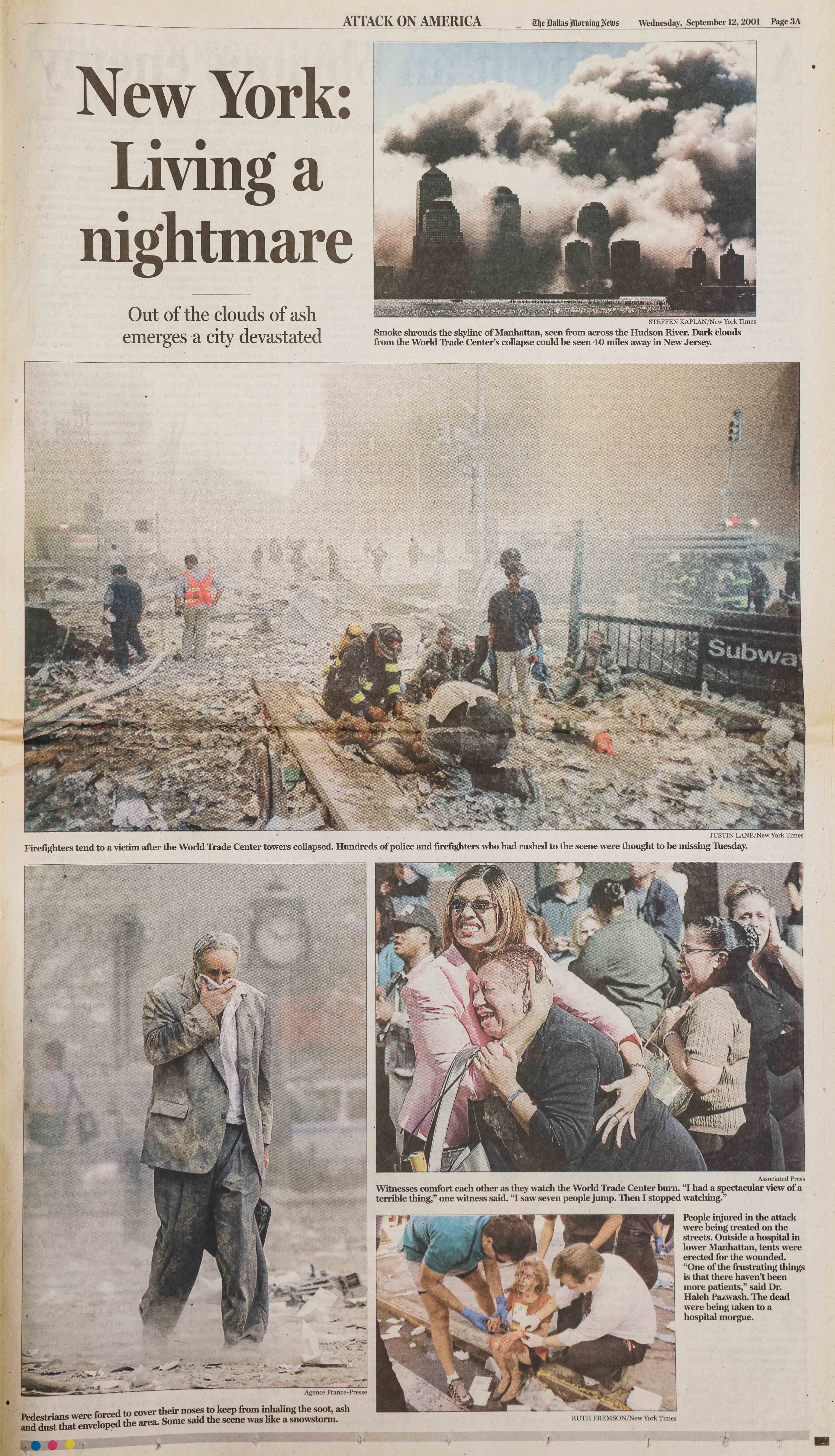A new health crisis confronts 9/11 first responders: Hidden Risks
- Update Time : Wednesday, June 12, 2024

A new health crisis confronts 9/11 first responders as they face a wave of cancer diagnoses. Years after the tragedy, unexpected medical issues continue to surface.
The brave men and women who rushed to the World Trade Center on September 11, 2001, are now encountering a daunting health challenge: an increased risk of cancer. Nearly two decades on, these heroes are battling illnesses that researchers link to the toxic dust and debris they were exposed to during the rescue and recovery efforts.
This latest health scare adds to the respiratory and mental health issues that have plagued many first responders since the attacks. Their courage and sacrifice were never in question, but now their physical well-being is under attack, with a surge in cancer cases casting a long shadow over the 9/11 community. This alarming trend underscores the need for ongoing medical monitoring and support for those who gave so much in one of America’s darkest hours.
Introduction To 9/11 Health Challenges
The 9/11 disaster is synonymous with heroism and tragedy. First responders rushed to aid, unaware of the health risks that would emerge. Years later, these heroes face a new challenge. Ground Zero exposure has led to a variety of health issues, some only now coming to light. These concerns range from respiratory conditions to rare cancers. The brave men and women who served are now battling ailments linked to the toxic environment they once navigated to save others. Their sacrifice continues to manifest in their ongoing health struggles, a sobering reminder of that fateful day’s lasting impact.

Credit: gizmodo.com
Uncovering The Hidden Risks
9/11 first responders face new challenges as delayed health effects surface. Years after the tragic event, a spike in unusual illnesses is noted. These patterns suggest hidden risks linked to their heroic efforts.
Medical professionals report cases of cancer, respiratory issues, and mental health conditions. These ailments appear long after exposure to the disaster site. The complexities of these conditions require ongoing research and support.
The Toxic Soup Of Ground Zero
The 9/11 tragedy left a lasting mark on first responders. Ground Zero’s environment was a mix of hazardous materials. These heroes faced a toxic cloud of dust, smoke, and chemicals. Firefighters, police officers, and paramedics inhaled and ingested these toxins. It resulted in serious health issues over time.
Many first responders now battle with chronic illnesses. Diseases like cancer and respiratory disorders are common. The air they breathed was laced with asbestos, lead, and other harmful particles. Sadly, these impacts were not immediately known. Years later, the true extent of damage to their health is evident.
Efforts to provide care and support continue. Yet, the struggle is far-reaching and complex. This reality serves as a reminder of their sacrifice. It also highlights the need for improved safety measures in disaster response.
Cancer: A New Battle For Many
A grim reality unfolds for 9/11 first responders. Many now face a new battle with cancer. Research links the surge in cancer rates directly to their heroic actions in 2001. Ground Zero’s toxic dust cloud contained harmful carcinogens. These carcinogens are now showing their effects. Medical studies confirm that exposure to this environment increases cancer risk. This includes respiratory and digestive cancers among others.
| Cancer Type | Increased Risk |
|---|---|
| Respiratory | Yes |
| Digestive | Yes |
| Other Types | Possible |
Victims and families seek support and care. The Zadroga Act is one source of relief. Yet, many still struggle with the long-term health consequences. The need for further research and aid is evident. We honor their sacrifice and advocate for their wellbeing.
Respiratory Ailments On The Rise
Many 9/11 first responders now face health issues. A big problem is respiratory ailments. These are breathing problems. Some conditions are very common. Others are rare and named Unique Respiratory Syndromes. Doctors and scientists work hard to help. They study these conditions to find better treatments. Breathing problems can make daily life hard. It’s important to help those who helped us on that tough day.

Credit: gizmodo.com
Mental Health: The Invisible Wound
Many 9/11 first responders suffer from Post-Traumatic Stress Disorder (PTSD). This problem is big. Depression and anxiety also affect these heroes. Studies show a high number have these issues. They faced scary events. Now, their minds keep reliving those moments. It’s hard for them to find peace. Help is there, but getting better takes time. We must support them.
Support Systems And Medical Response
Health programs for 9/11 responders offer critical support. These programs address the unique needs of those heroes. Medical and mental health issues are now more complex.
Many face severe respiratory and cancerous conditions. The World Trade Center Health Program is one such initiative. It provides monitoring and treatment for eligible responders and survivors.
Securing funding for these programs often presents a challenge. As diseases manifest years later, long-term care becomes essential. The ongoing commitment from the government is crucial. It ensures that these brave men and women receive the care they deserve.
The Fight For Recognition And Benefits
The health challenges faced by 9/11 first responders are alarming. Many suffer from respiratory illnesses and cancers linked to Ground Zero toxins. Groups push for recognition of these conditions as service-related. Efforts ensure access to necessary medical care and benefits.
Recent years have seen crucial legislation passed. The Zadroga Act, named after a fallen NYPD officer, is one example. It provides health monitoring and financial aid to affected first responders. Renewing and expanding this act is vital for ongoing support.
Conclusion: A Continuing Legacy Of Bravery And Sacrifice
The bravery and sacrifice of 9/11 first responders remain honored. Their courage in the face of adversity continues to inspire. Yet, they now confront a new health crisis. The struggle for these heroes is far from over. Many face long-term health effects due to their selfless actions.
It’s crucial to support the ongoing health challenges they endure. Sustained research efforts are vital. This can lead to better understanding and treatments. As a society, we owe it to them to provide enduring support. Their well-being is a priority.
Let’s unite in aiding those who once stood at the frontline. Continuous research and support systems are imperative. They shielded us; now we must stand by them in their time of need.

Credit: www.dallasnews.com
Frequently Asked Questions
What New Health Issues Are 9/11 Responders Facing?
First responders from 9/11 are now confronting a range of severe health complications, including respiratory diseases, cancer, and mental health issues. These conditions are often linked to the toxic exposure from the site’s debris.
How Are These Health Problems Related To 9/11?
The health problems stem from exposure to dust, smoke, and toxic substances released during the collapse of the World Trade Center. These substances contained harmful particles and chemicals that have long-term health impacts on the responders.
What Support Is Available For Affected 9/11 First Responders?
Affected first responders have access to medical monitoring and treatment through the World Trade Center Health Program. This program provides healthcare and support specifically tailored to 9/11 health conditions.
How Can 9/11 First Responders Get Help?
9/11 first responders can enroll in the World Trade Center Health Program for dedicated healthcare services. Additionally, they can seek compensation through the September 11th Victim Compensation Fund for related health issues.
Conclusion
The plight of 9/11 first responders continues as they face new health challenges. Their bravery is matched only by the complexity of their medical needs. Let’s honor their sacrifices by ensuring ongoing support and research into their well-being. Their legacy of heroism must never be forgotten, nor their health neglected.

















Leave a Reply